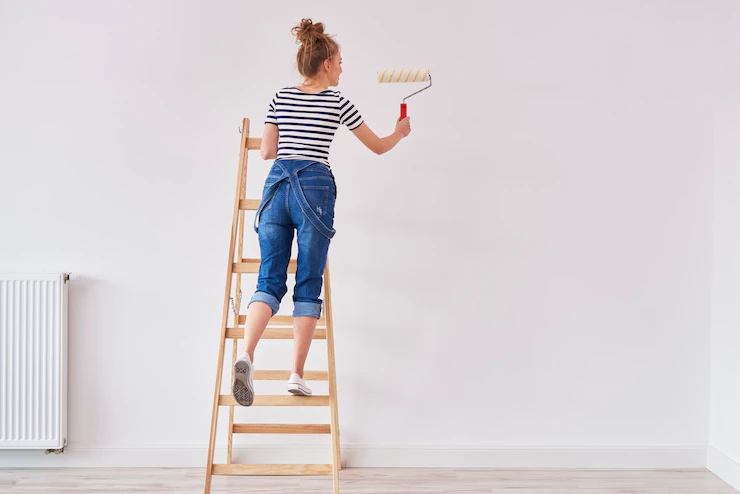It’s that time of year when many people feel compelled to clean their closets, houses or garages and get rid of the piles of “stuff” that accumulated over the winter months. What most people don’t realize is that these chores can be extremely hard on their muscles and bones and can lead to aches, pains and injury. In fact, of the millions of home-related injuries that occur each year, many result from household cleaning.

“People try to do too much, too quickly,” explained Jennifer Maximos, an occupational therapist at Kessler Institute for Rehabilitation (http://www.kessler-rehab.com). “Cleaning chores involve stretching, lifting, pushing, pulling, climbing, twisting and turning, and most people tend to overdo it. In addition, most of us don’t take the necessary precautions. Many common injuries, including strains, sprains, tendonitis, or even fractures, may be prevented by using proper techniques, such as bending from the knees when lifting, and using proper safety strategies, like securing and stabilizing a ladder before climbing.”
To help get the job done and avoid injury, Kessler, a national leader in the field of physical medicine and rehabilitation, recommends the following “Six Steps to Spring Cleaning”:
1. Set realistic goals. Rome wasn’t built in a day and a thorough annual cleaning won’t get done in that timeframe either. Plan to tackle the project over several days or a few weekends so you give your body a rest in between.
2. Check equipment. Ladders, stools and scaffolding may be needed to reach ceilings and high places, so be sure to inspect these items before using. In fact, now is the time to check all cleaning tools and equipment and make any necessary repairs in order to avoid potential injuries.
3. Be safe. Keep all areas, especially halls and stairways well-lit and free of clutter. Make sure floors are dry before walking on them. Work in well-ventilated areas when using cleaning solutions and keep them away from children and pets.
4. Enlist help. Ask family members or friends to pitch in and help. Assign tasks so everyone shares in the work and has the necessary equipment.
5. Use proper techniques. Using the right body mechanics can help to minimize the risk of serious injury. Here are some guidelines:
Lifting and carrying: Always have someone assist you when moving furniture or heavy boxes. When lifting, bend your knees and lift through your legs instead of your back. Also, keep boxes or other items close to your body rather than having your arms outstretched.
Vacuuming: Twisting and turning when vacuuming puts increased compression on the spine and neck. To avoid problems, keep the machine or hose close to the front center part of your body and at waist height. Place both hands on the handle and push the vacuum in front of you while walking in a long line, then pull back using the same motion. Never push and pull in short strokes.

Windows: Keep your feet on the ground or on a secure ladder/step stool (never climb on furniture or windowsills!) and be level with the area you are cleaning to avoid stretching. Also keep your back straight and avoid tilting your head up or back or upward, especially for a long period of time.
Mopping: Mop your floors whenever possible, rather than getting on your knees to scrub. Start with small areas, pushing forward and then backward without leaning forward. If scrubbing is needed, place a pad or towels under your knees and avoid reaching too far in any direction.
Bathtubs and showers: Kneeling, bending and stretching are not recommended. Instead, stand outside the tub with your back straight and use a mop to clean tile walls and the tub.
Painting: Keep paintbrushes and rollers in front of you and waist-high so that your spine is straight. Looking up at high walls or ceilings for extended periods of time can put extra pressure on nerves and cause pinching and numbness. Paint in short intervals and take frequent breaks.
6. Benefit from the exercise. Spring cleaning can actually be good exercise. You can burn hundreds of calories while dusting, vacuuming, washing and wiping. Take frequent breaks to rest and re-hydrate.
“Spring cleaning can actually help to lift your spirits and boost your energy,” said Maximos. “And while it’s difficult to avoid all of the minor aches and pains that come with these chores and our natural tendency to overdo tasks, following these simple guidelines can help to prevent more serious injury.”



